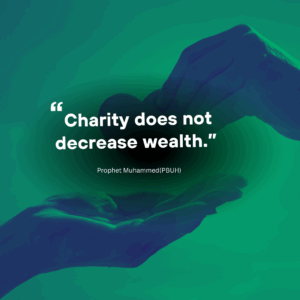Uncategorized
The Muslim After Ramadan
Ramadan, the sacred month of fasting, is a divine opportunity for spiritual purification and nearness to Allah (SWT). However, true success lies not in merely completing the month, but in the lasting transformation it leaves in the heart and actions of the believer after Ramadan. A Muslim’s devotion should not end with the last day of Ramadan; rather, Ramadan should serve as a springboard for continued righteousness throughout the year. Below are some lessons to take along from Ramadan
- Ramadan: A School of Taqwa Allah says in the Qur’an:
“O you who believe! Fasting is prescribed for you as it was prescribed for those before you, that you may attain Taqwa (piety).” [Al-Baqarah 2:183].
The essence of Ramadan is to nurture Taqwa—God-consciousness. It is not a seasonal characteristic, but a lifelong pursuit. The acts of devotion and discipline acquired in Ramadan—fasting, praying, avoiding sin—should continue. Fasting is not just refraining from food and drink, but from evil and idle talk. The Prophet ﷺ said:
“Whoever does not give up false speech and acting upon it, Allah has no need of his giving up food and drink.”[Al-Bukhari 1903].
- The Continuation of Good Deeds :
Among the signs of an accepted Ramadan is consistency in worship after it ends. Allah loves continuous, even if small, acts of devotion. The Prophet ﷺ said:
“The most beloved deeds to Allah are those that are continuous, even if they are little.” [Al-Bukhari 6464; Muslim 782].
This means maintaining regular prayers, reciting the Qur’an, observing voluntary fasts such as Mondays, Thursdays, or the six days of Shawwal, as the Prophet ﷺ said: “Whoever fasts Ramadan and then follows it with six days of Shawwal, it is as if he fasted for a lifetime.” [Muslim 1164]
- Guarding the Five Daily Prayers:
A key lesson from Ramadan is punctuality and devotion in prayer. The night prayers (Taraweeh and Qiyam al-Layl) energize our spiritual commitment. But more important than voluntary prayers is safeguarding the five daily prayers;
“Indeed, prayer has been decreed upon the believers a decree of specified times” [An-Nisa 4:103].
The Prophet ﷺ described prayer as the pillar of religion. Post-Ramadan, it is vital not to fall back into laziness or heedlessness regarding salah.
- Continuing Charity and Kindness:
Ramadan inspires generosity, as many Muslims give zakat and sadaqah during the month. Yet, the need for charity doesn’t end with Ramadan. Giving in charity cools Allah’s anger and extinguishes sins, just as water extinguishes fire. The Prophet ﷺ said:

“Charity does not decrease wealth.” [Muslim 2588]
A true believer continues to give in charity, supports the needy, and helps the community beyond Ramadan.
- Repentance and Avoidance of Sin:
One of the greatest gifts of Ramadan is the sincere return to Allah. But how tragic it is for a Muslim to revert to old sins after attaining spiritual purification. Allah loves those who repent constantly:
“Indeed, Allah loves those who are constantly repentant and loves those who purify themselves” [Al-Baqarah 2:222].
The Prophet ﷺ himself sought forgiveness over 70 times a day [Al-Bukhari 6307]. So who are we to slacken in seeking Allah’s pardon after Ramadan?
- Beware of Spiritual Decline:
Shaytaan is chained during Ramadan, making it easier to avoid sin. After Ramadan, the devils are released, and the real test begins. Our struggle with desires and distractions resumes. This is why the Muslim must be even more vigilant.
Conclusion
The Muslim after Ramadan should be a better person than he was before it. The goal is Istiqaamah—steadfastness. As Allah says:
“So remain on a right course as you have been commanded [Hud 11:112]
May Allah accept our deeds during Ramadan and grant us the strength to remain steadfast in worship afterward. Let the spirit of Ramadan live in our hearts all year round.

